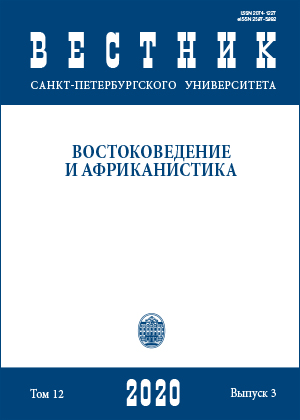Changing Recognition and the End of Authority — about the Fate of Russian and Soviet Literature in China
DOI:
https://doi.org/10.21638/spbu13.2020.301Abstract
Since the 1980s, Russian and Soviet literature has been met with a cold response from Chinese readers. Although there are some historical reasons for this situation, it is quite unfortunate. In the 1950s and 1960s, Russian literature was irrationally regarded as the best literature in the whole world by most Chinese readers, a distorted an incorrect perception. These phenomena have largely caused the indifference of Chinese readers today. Over the past 100 years, Chinese modern literature consciously accepted the influence of Russian literature, and the images of Russian literature changed according to different situations in the course of development in China. The positive and negative consequences of this influence depend on the various concepts and borrowing methods by modern Chinese writers. In the 1980s with the beginning of the reforms and openness, the horizons of the Chinese readers broadened, and they started to fully realize what foreign literature was. At that time Russian and Soviet literature was just a small part of foreign literature and could not dominate the landscape. The relationship between Chinese and Russian literature became independent in many ways. Today’s studies of Russian-Chinese literary relations should continue to examine this phenomenon, find cultural factors that support it and look for unappreciated spiritual sources in Russian and Soviet literature. Additionally, the shared problems that modern Russian and Chinese literature face should be investigated.
Keywords:
Russian and Soviet literature, Chinese modern and contemporary literature, reception of literature, literary influence.
Downloads
References
Downloads
Published
How to Cite
Issue
Section
License
Articles of "Vestnik of Saint Petersburg University. Asian and African Studies" are open access distributed under the terms of the License Agreement with Saint Petersburg State University, which permits to the authors unrestricted distribution and self-archiving free of charge.





